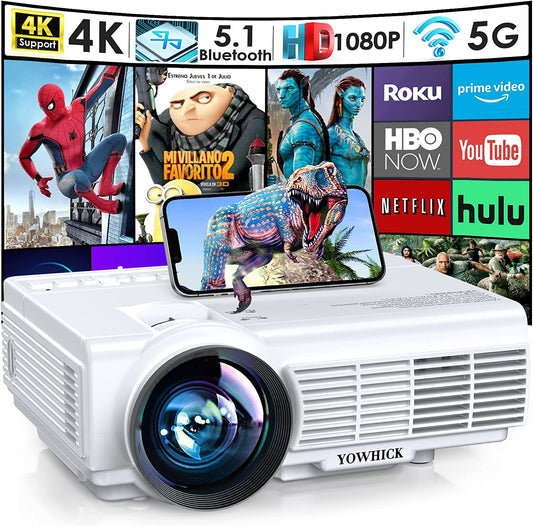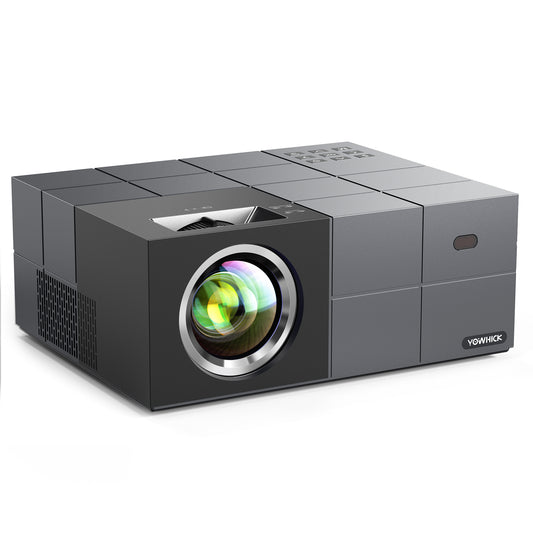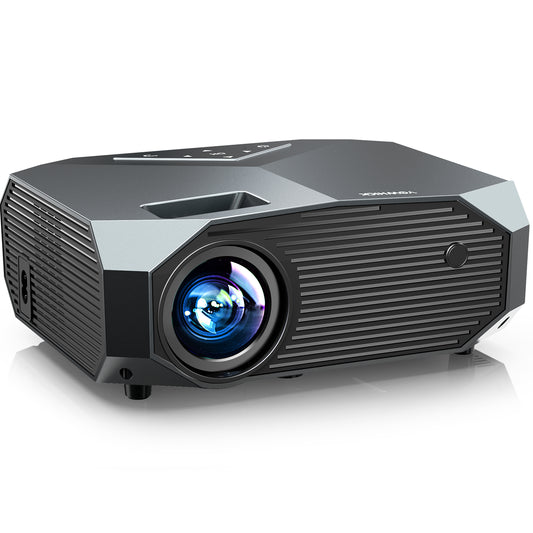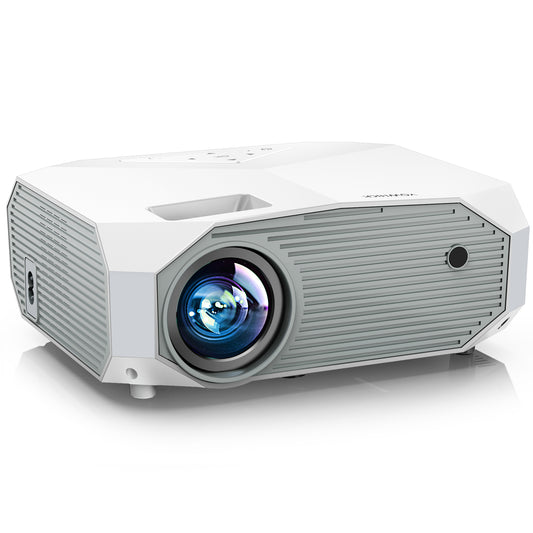Looking to take your home entertainment to the next level? A high-quality home projector is an excellent way to create a cinematic experience without leaving the comfort of your own home. But with so many options available on the market, choosing the right home projector can be overwhelming. In this comprehensive guide, we'll cover all the essential factors you need to consider when selecting the perfect home projector for your needs. From understanding the different types of projectors and their respective technologies, to optimizing your screen size and resolution, to setting up your projector and sound system, and even troubleshooting common issues – we've got you covered. By the end of this guide, you'll have all the knowledge you need to make an informed decision and create the perfect home theater experience.
The Different Types of Home Projectors: DLP, LCD, and LCoS
Home projectors have become increasingly popular in recent years as people look to recreate the cinema experience in their own homes. The three most common types of home projectors are DLP, LCD, and LCoS, each with its own unique features and benefits.
DLP projectors use tiny mirrors to reflect light onto the screen. They offer excellent color accuracy, high contrast ratios, and fast refresh rates, making them ideal for watching movies or playing video games. DLP projectors are also typically smaller and lighter than other types of projectors, making them more portable. However, they can be more expensive than other types of projectors, and some people may notice a "rainbow effect" caused by the color wheel used in some DLP projectors.
LCD projectors use three separate LCD panels to create images. They offer bright and vivid colors, making them ideal for presentations and other business applications. LCD projectors also tend to be more affordable than DLP projectors, making them a popular choice for home theater setups. However, LCD projectors can suffer from "screen door effect," where the individual pixels are visible, creating a grid-like pattern on the screen.
LCoS projectors use liquid crystals on a reflective surface to create images. They offer excellent color accuracy and high contrast ratios, making them ideal for watching movies and playing video games. LCoS projectors are also typically more compact than DLP projectors, making them easier to set up and install. However, they can be more expensive than LCD projectors, and some people may notice a "soap opera effect" caused by the way LCoS projectors interpolate frames to create a smoother image.

Understanding Lumens and Contrast Ratio
When it comes to choosing a home projector, two important specifications to consider are lumens and contrast ratio. Lumens refer to the brightness of the projector and are measured in ANSI lumens. The higher the number of lumens, the brighter the projector will be. A higher number of lumens is especially important if you plan to use the projector in a bright room or if you have a larger screen. A projector with low lumens may produce a dim, washed-out image, making it difficult to see details or enjoy the full range of colors.
However, it's important to note that higher lumens also mean a higher price tag. If you plan to use the projector in a dark room or for smaller screens, you may not need as many lumens, and you can save money by choosing a projector with a lower lumen count. Generally, a home projector with 1000 to 2000 lumens is suitable for small to medium-sized screens, while a projector with 2000 to 3000 lumens is better for larger screens or brighter rooms.
Another important specification to consider when choosing a home projector is contrast ratio. Contrast ratio is a measure of the difference between the darkest and brightest parts of an image. A higher contrast ratio means the projector can display more subtle shades of gray and produce deeper blacks, resulting in a more detailed and vibrant image. A low contrast ratio can result in a washed-out, dull image with less detail.

Choosing the Right Screen Size for Your Home Projector
The size of your screen is another crucial factor to consider when choosing a home projector. You'll need to think about the size of your room, the aspect ratio of your projector, and the viewing distance to determine the optimal screen size for your needs. A larger screen may provide a more immersive experience, but it can also reduce image quality if it's too big for the room.
The Impact of Resolution on Your Home Projector: 720p, 1080p, and 4K
Resolution is another critical factor to consider when choosing a home projector. The higher the resolution, the sharper and more detailed the image will be. Common resolutions for home projectors include 720p, 1080p, and 4K. However, higher resolution projectors can be more expensive, and you'll also need to ensure that your media source can support the resolution you choose.
Other Factors to Consider When Choosing a Home Projector: Portability, Connectivity, and Smart Features
Finally, there are several other factors to consider when choosing a home projector. Portability may be important if you plan to move the projector between rooms or take it with you on the go. Connectivity options, such as HDMI and wireless connectivity, can make it easier to connect your projector to other devices. And smart features, such as built-in streaming services and voice control, may be important for some users. Considering these additional factors can help you choose a home projector that meets all of your needs and preferences.
Conclusion
Choosing the right home projector can make all the difference in creating a perfect home theater experience. By considering factors such as resolution, technology, lumens, contrast ratio, and throw distance, you can ensure that you're getting a projector that meets your specific needs and preferences. Additionally, it's important to remember that price doesn't always equal quality, and there are many great projectors available at affordable prices. By following the tips and guidelines outlined in this guide, you can confidently choose the right home projector and take your movie nights to the next level. Whether you're looking for a cinema-like experience or just a way to watch your favorite shows and movies on a big screen, a home projector can provide an immersive and enjoyable experience for the whole family.









